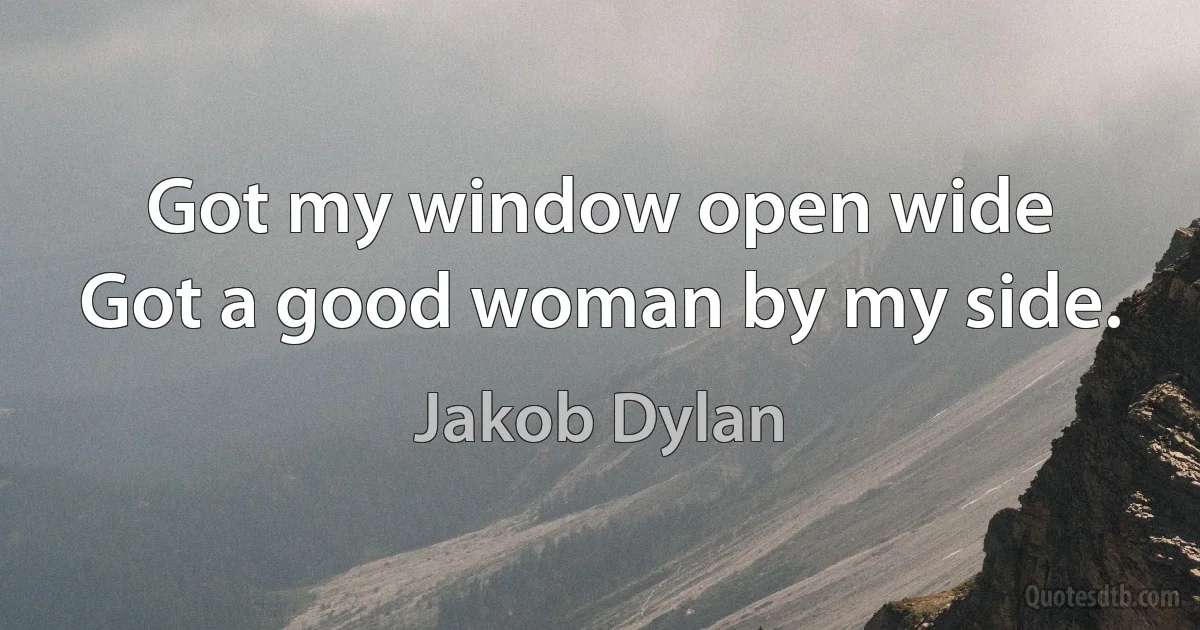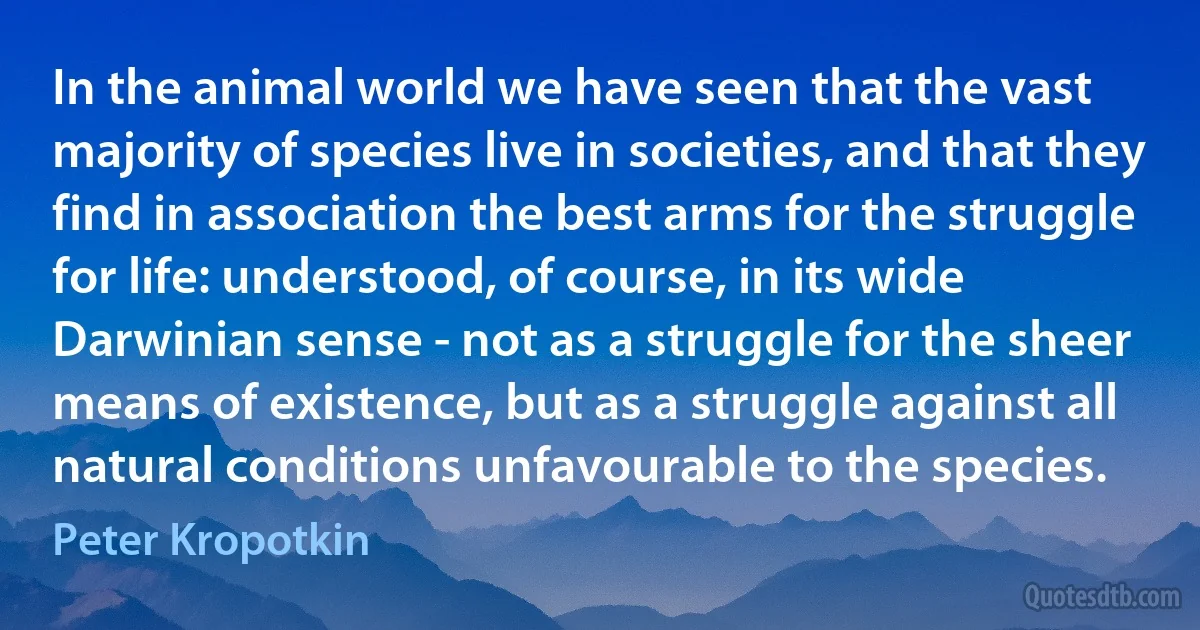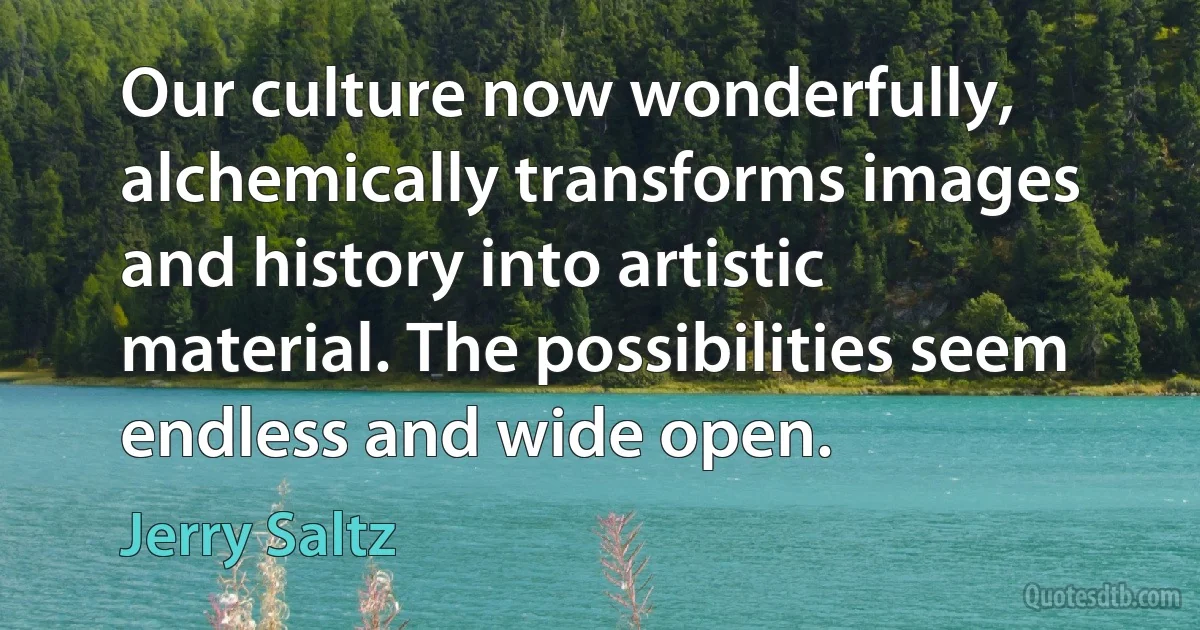Wide Quotes - page 35
I found every breath of air, and every scent, and every flower and leaf and blade of grass and every passing cloud, and everything in nature, more beautiful and wonderful to me than I had ever found it yet. This was my first gain from my illness. How little I had lost, when the wide world was so full of delight for me.

Charles Dickens
The jovial party broke up next morning. Breakings-up are capital things in our school-days, but in after life they are painful enough. Death, self-interest, and fortune's changes, are every day breaking up many a happy group, and scattering them far and wide and the boys and girls never come back again.

Charles Dickens
The two stand in the fast-thinning throng of victims, but they speak as if they were alone. Eye to eye, voice to voice, hand to hand, heart to heart, these two children of the Universal Mother, else so wide apart and differing, have come together on the dark highway, to repair home together, and to rest in her bosom.

Charles Dickens
The wide stare stared itself out for one while the Sun went down in a red, green, golden glory the stars came out in the heavens, and the fire-flies mimicked them in the lower air, as men may feebly imitate the goodness of a better order of beings the long dusty roads and the interminable plains were in repose--and so deep a hush was on the sea, that it scarcely whispered of the time when it shall give up its dead.

Charles Dickens
O, we all long for the day, the blessed day, when freedom shall at least be co-extensive with Christendom; when a slave political or domestic, shall not tread on an atom upon which the cross of Calvary has cast its shadow; when the baptism of the crucified shall be on every brow, the seal of a heavenly sonship; when the fire of a new Pentecost shall melt asunder, by its divine heat of charity, the bond which wrong or prejudice has fastened; when, to touch any spot over the wide sweep of God's Christianized earth, any spot which the gospel of the Saviour has ever visited, which the name of the Saviour has ever sanctified, shall be, in itself, the spell of a complete deliverance, the magic of a perfect franchise.

Henry Giles
So what is Norway?
Norway is high mountains and deep fjords. It is wide open spaces and rocky coastlines. It is islands and archipelagos. It is lush farmland and rolling moors.
The sea laps Norway's shores in the north, west and south.
Norway is midnight sun and polar night. It is harsh winters and mild winters. It is hot summers and cold summers.
Norway is a long and sparsely populated country.
But above all, Norway is its people.

Harald V of Norway
The higher conception of "no revenge for wrongs," and of freely giving more than one expects to receive from his neighbours, is proclaimed as being the real principle of morality - a principle superior to mere equivalence, equity, or justice, and more conducive to happiness. And man is appealed to to be guided in his acts, not merely by love, which is always personal, or at the best tribal, but by the perception of his oneness with each human being. In the practice of mutual aid, which we can retrace to the earliest beginnings of evolution, we thus find the positive and undoubted origin of our ethical conceptions; and we can affirm that in the ethical progress of man, mutual support - not mutual struggle - has had the leading part. In its wide extension, even at the present time, we also see the best guarantee of a still loftier evolution of our race.

Peter Kropotkin
Wide, wide flow the nine streams through the land, Dark, dark threads the line from south to north. Blurred in the thick haze of the misty rain Tortoise and Snake hold the great river locked. The yellow crane is gone, who knows whither? Only this tower remains a haunt for visitors. I pledge my wine to the surging torrent, The tide of my heart swells with the waves.

Mao Zedong
Free election of masters does not abolish the masters or the slaves. Free choice among a wide variety of goods and services does not signify freedom if these goods and services sustain social controls over a life of toil and fear – that is, if they sustain alienation. And the spontaneous reproduction of superimposed needs by the individual does not establish autonomy; it only testifies to the efficacy of the controls.

Herbert Marcuse
He is then led on a terribly wild path, very gloomy and forsaken. And on this path God takes back from him everything that he had ever given him. Then and there the person is left so completely to himself that he loses all notion of God and gets into such a distressful state that he cannot remember whether things had ever gone right for him, so as not to know any more if he were ever on the right path, whether he has a God or not, nor does he know if God does or does not exist, or if he is alive or dead and whether he is the same person; and he suffers such incredible pain that this whole wide world is too confining for him.

Johannes Tauler
The world stands out on either side No wider than the heart is wide; Above the world is stretched the sky, No higher than the soul is high. The heart can push the sea and land Farther away on either hand; The soul can split the sky in two, And let the face of God shine through. But East and West will pinch the heart That can not keep them pushed apart; And he whose soul is flat-the sky Will cave in on him by and by.

Edna St. Vincent Millay
A critical sense of style and of poetic form is not easy to attain, nor is it of first importance for the younger, or, indeed, for any student of Virgil. Wide open to anyone who is willing to learn is the richer knowledge of Virgil as a poet who loved his country and who loved also that humanity which existed before Rome, exists today within ourselves, and will exist long after our own civilization, like that of Virgil's Rome, has become a matter of "ancient history." It is true that the longer one has lived the better one can appreciate a poem which is concerned with life. But the gain that comes to us with the years depends, partly at least, upon the riches we have been willing to extract from literature, which is the experience of other men and women written out. In youth's search for this treasure the Aeneid will be at once a fair haven and a port of departure.

John Conington



